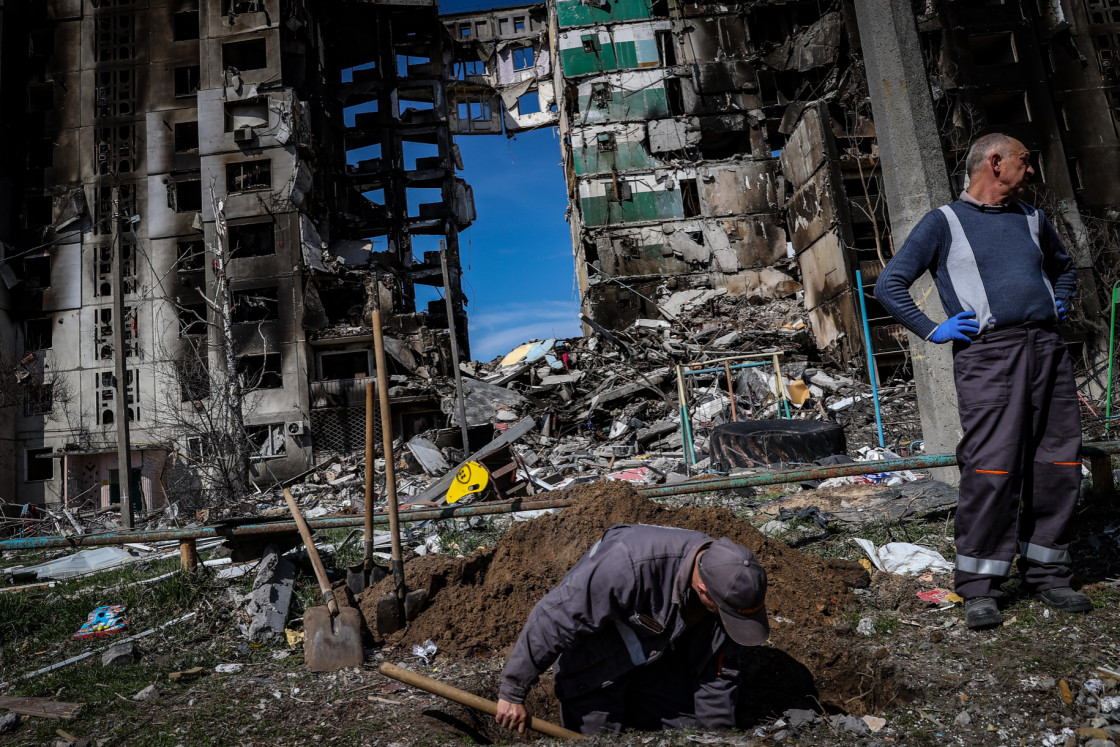
Borodyanka was once a quiet little town about 50 kilometres west of Kyiv until Russian forces took control of it in the first few days of the war. The town, is not too far from Bucha – which has been mentioned due to potential war crimes having been committed there – and it was under Russian occupation for a month. We arrived just a few days following the sudden, overnight retreat of the Russian forces.
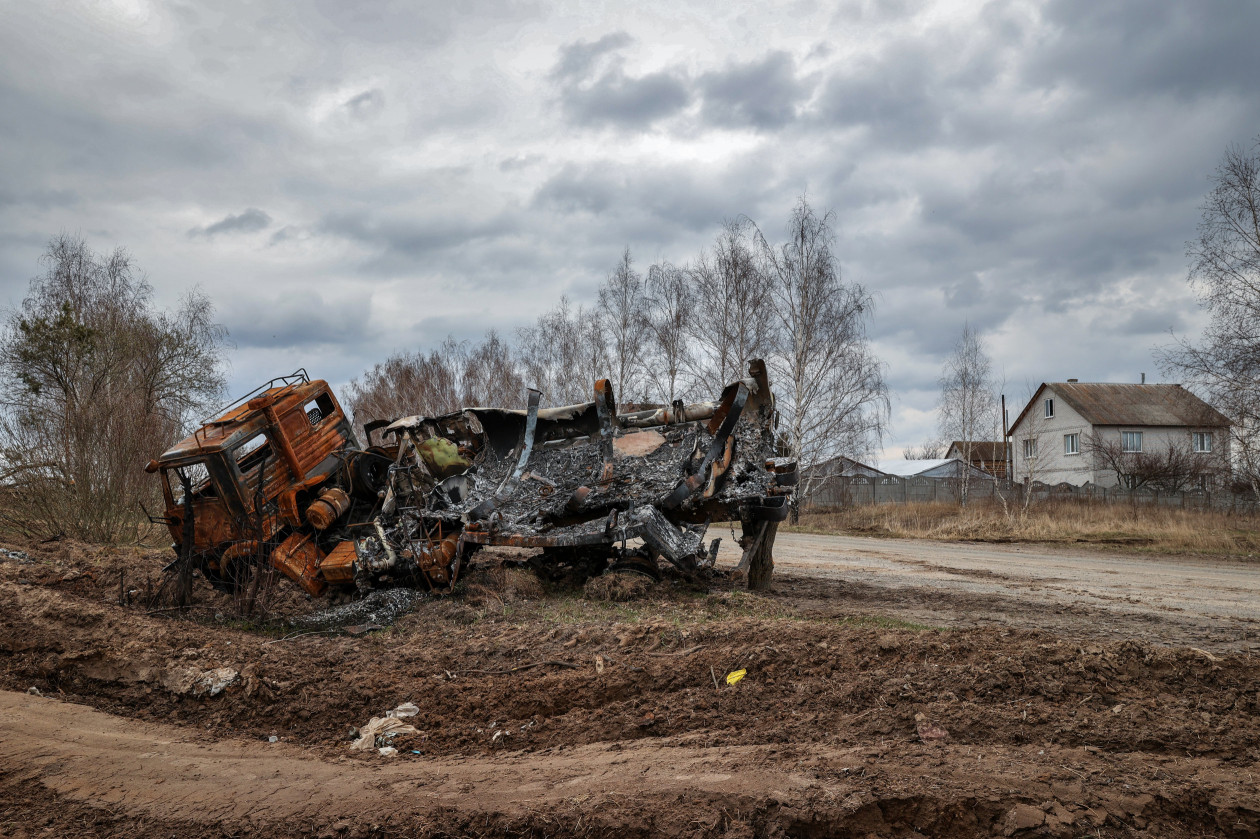
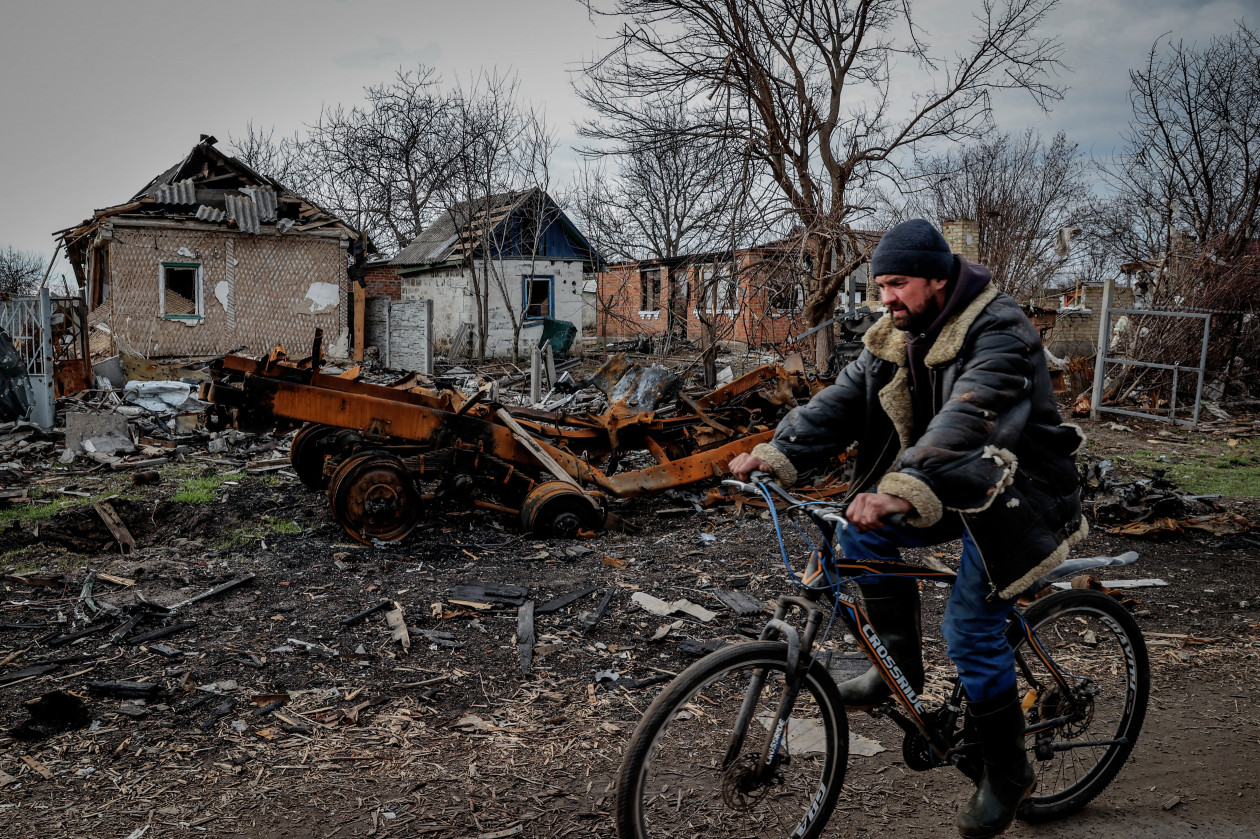
We approached Borodyanka from the West, travelling through a series of small villages. As we got closer, we saw more and more signs of destruction. We drove amongst burnt-out cars and shot up houses. The locals, who had been hiding in cellars from the fighting and from the soldiers had already begun to return to the houses.
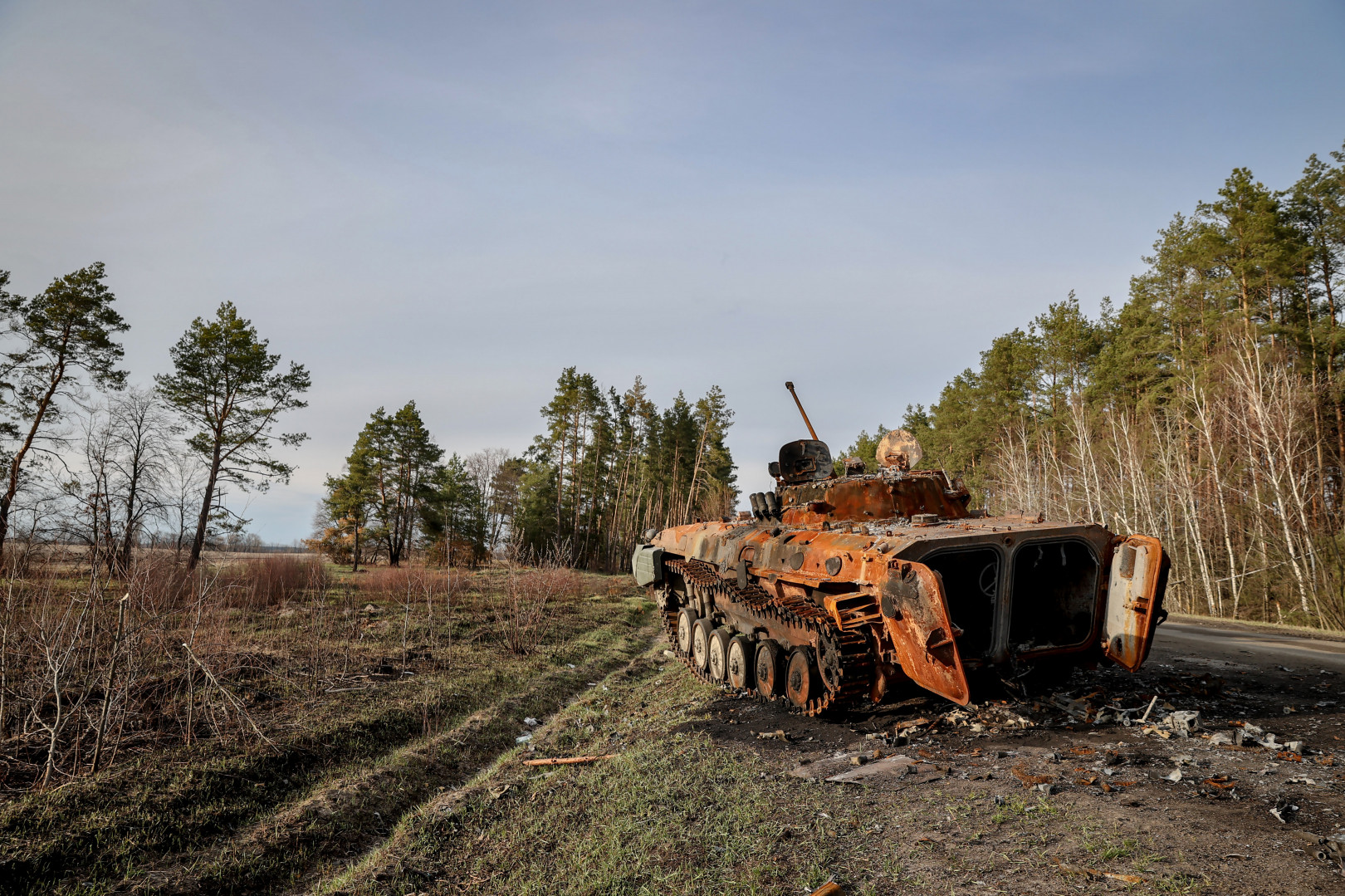
Burnt-out, smashed tanks, and armoured vehicles lined the road at several points, indicating where fighting for the area had taken place. In the fields, the wide turrets of the tanks which had flown far away, with their guns lying on the ground looked like huge, squashed bugs. Locals say these are proof of the work done by the Javelin anti-tank missiles used by the Ukrainians. The shoulder-launched missiles, donated by Western countries, strike the tanks from above, hitting their most vulnerable point, the turret.
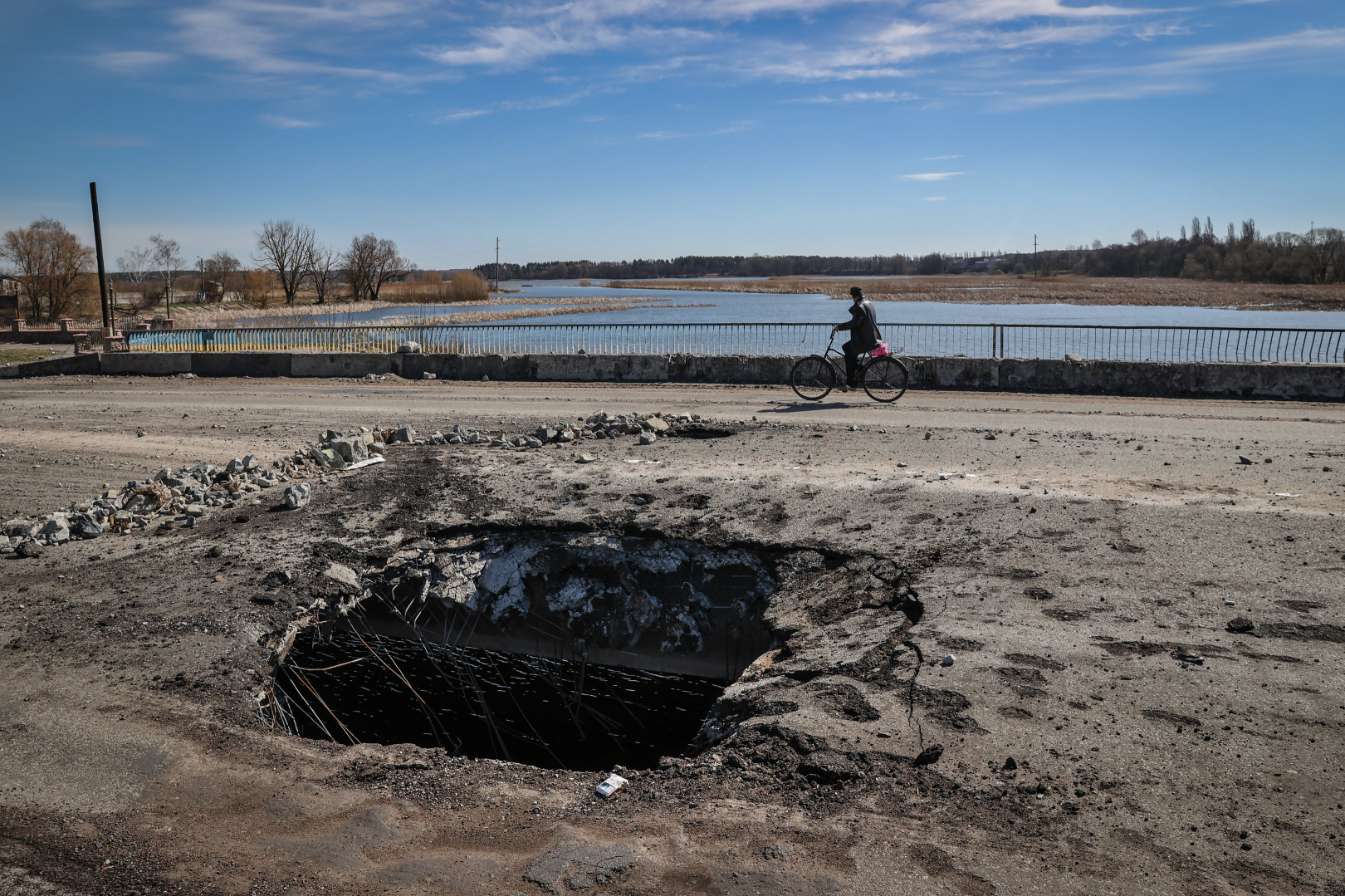
The fighting had also transformed life in the area. Traffic rules and routes have changed. Instead of using a map, we planned our trip by asking locals in hopes of finding out where the roads are impassable and the bridges dangerous.
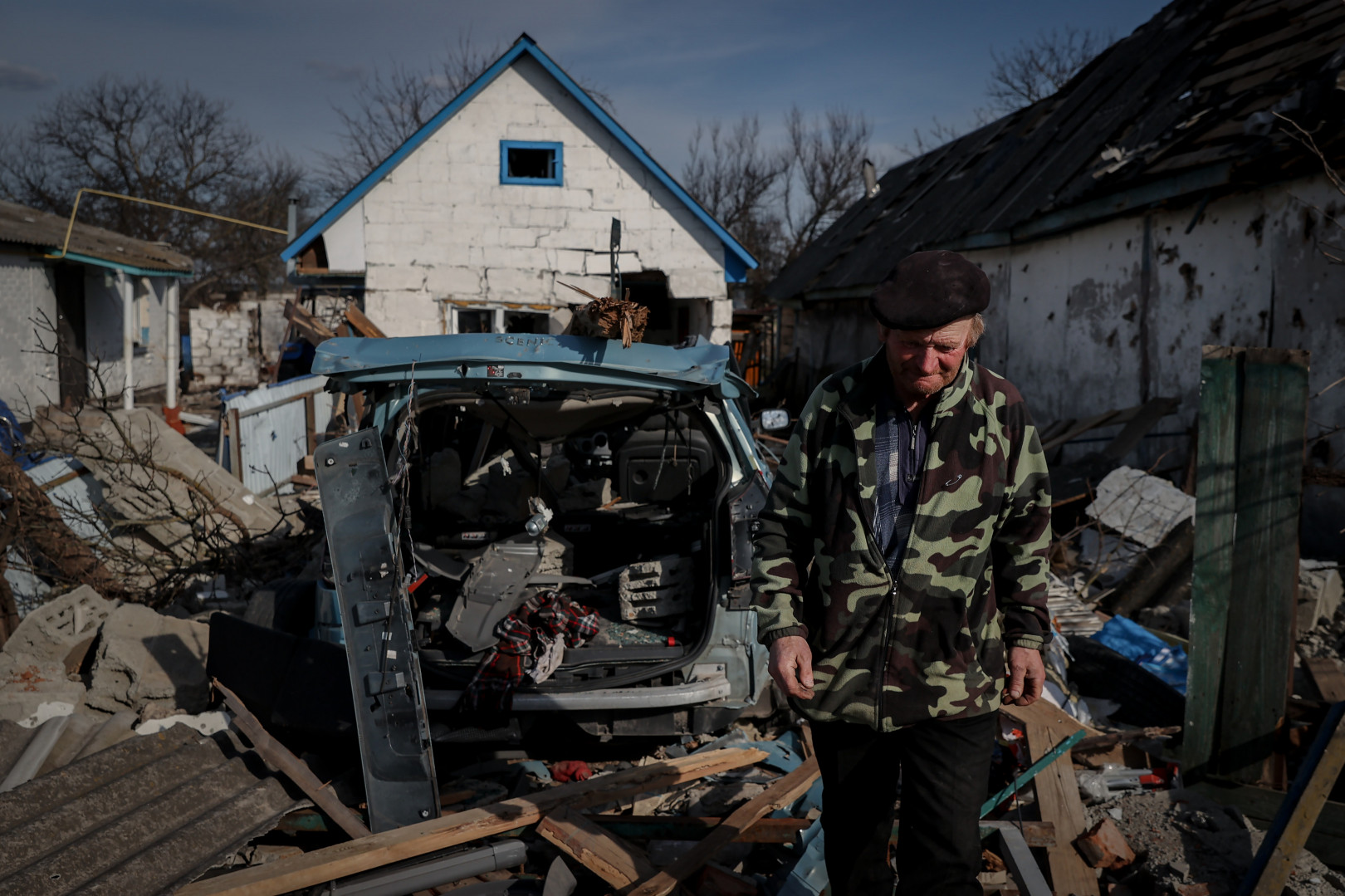
The scale of the destruction in the area was so huge that it almost seemed grotesque as the locals had set out to clean up just a few days after the Russian army had left. In most yards, they were clearing the rubble by hand as they looked for anything that might still be usable. The man in the photo was siphoning the petrol from his completely destroyed car.
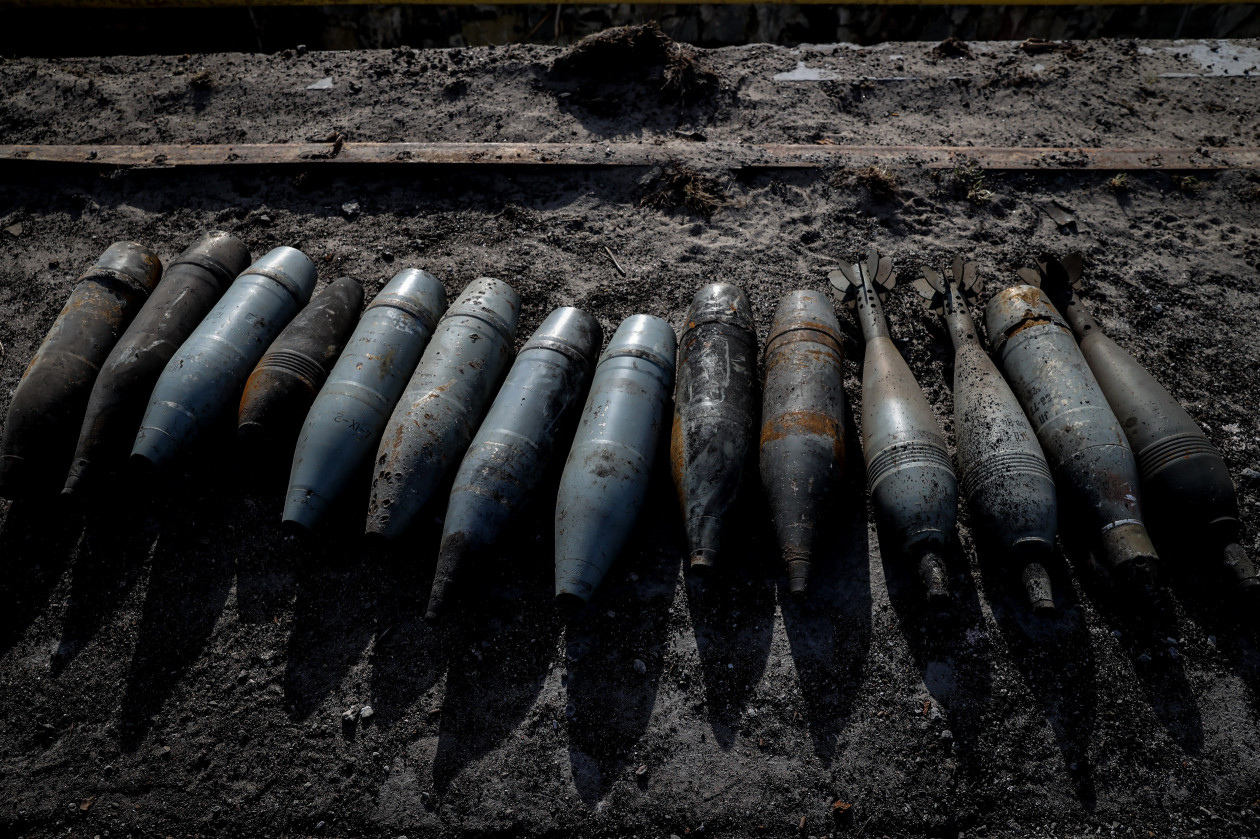
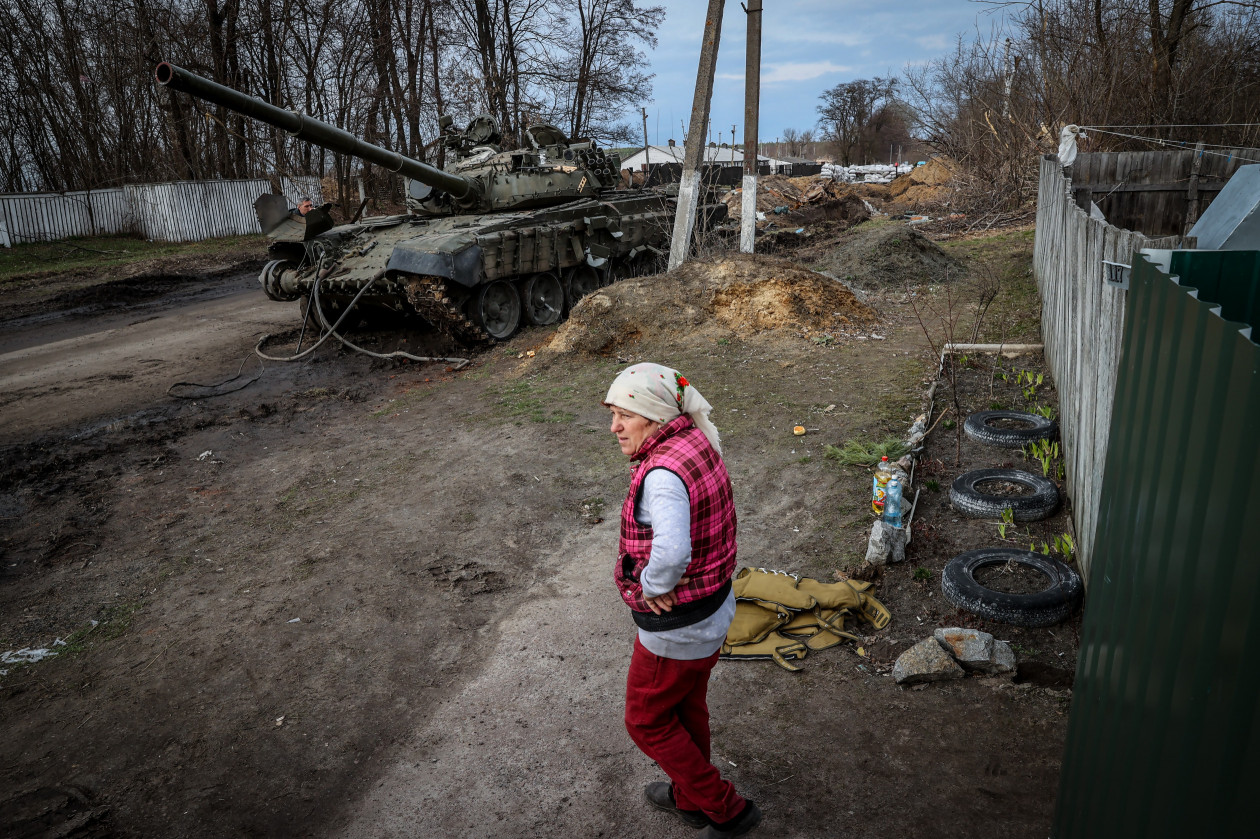
The work is not without danger, as the area is filled with explosives, bombs and ammunition. It’s impossible to walk around without ammunition crunching underfoot, and hundreds of crates of Russian ammunition are still scattered across the fields. Rumour has it that the Russians have hidden mines and explosives in houses so that even after they have left, there would be more casualties. Right now, the Ukrainians are working on recovering the bodies and disposing of the mines left behind by the Russians.
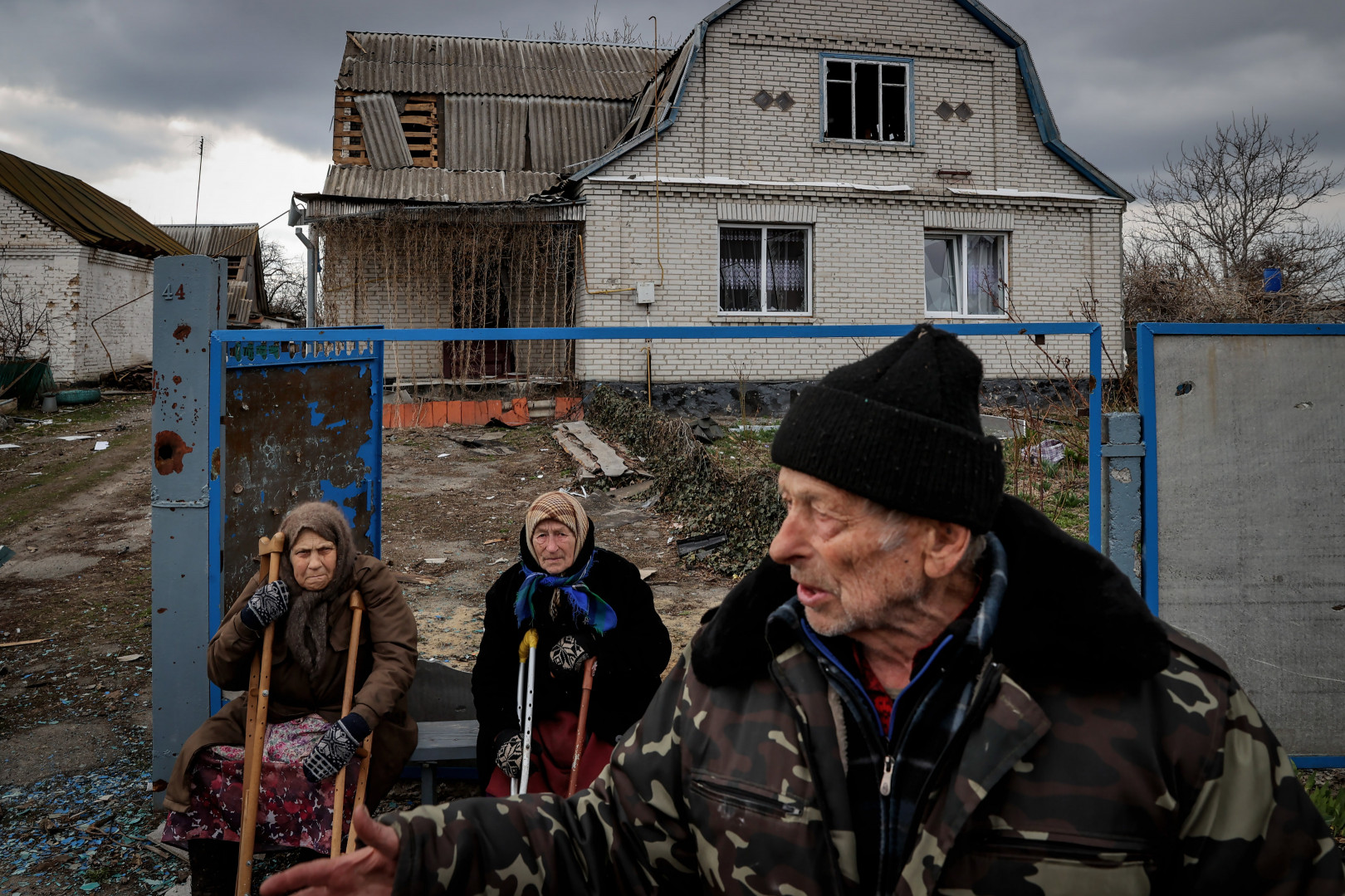
Many have compared these events to the second World War. The older generation is perplexed by the Russians’ entry, since – as they said – they had served with them in the Soviet army. (Weeks ago, locals told us similar things in the southern city of Mykolayiv.)
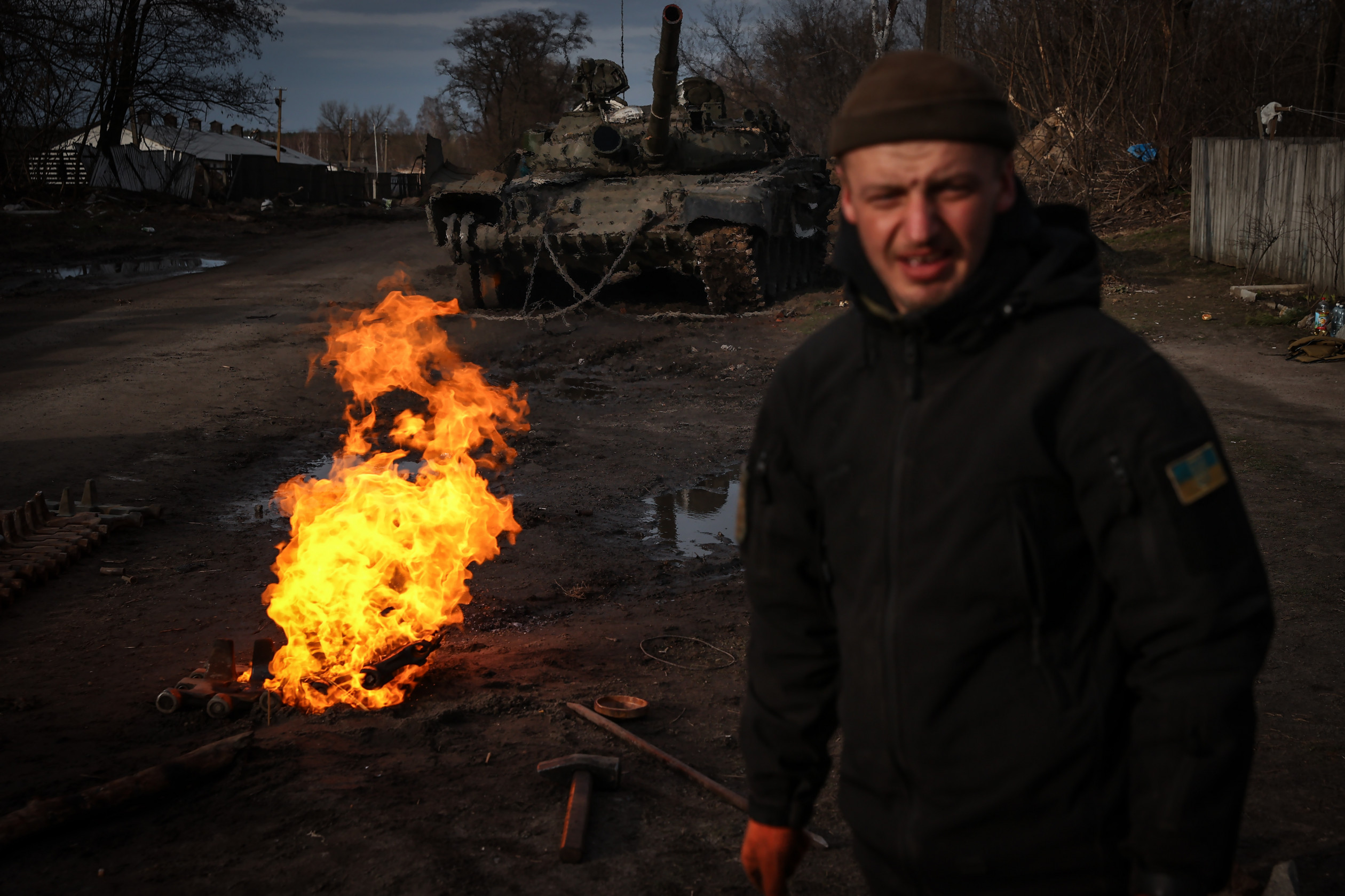
While the locals were busy around their homes, the Ukrainian soldiers were focusing on dismantling and removing the Russian combat equipment still left in the area. This soldier and his comrades worked for days to dismantle the tank's chain link by chain link.
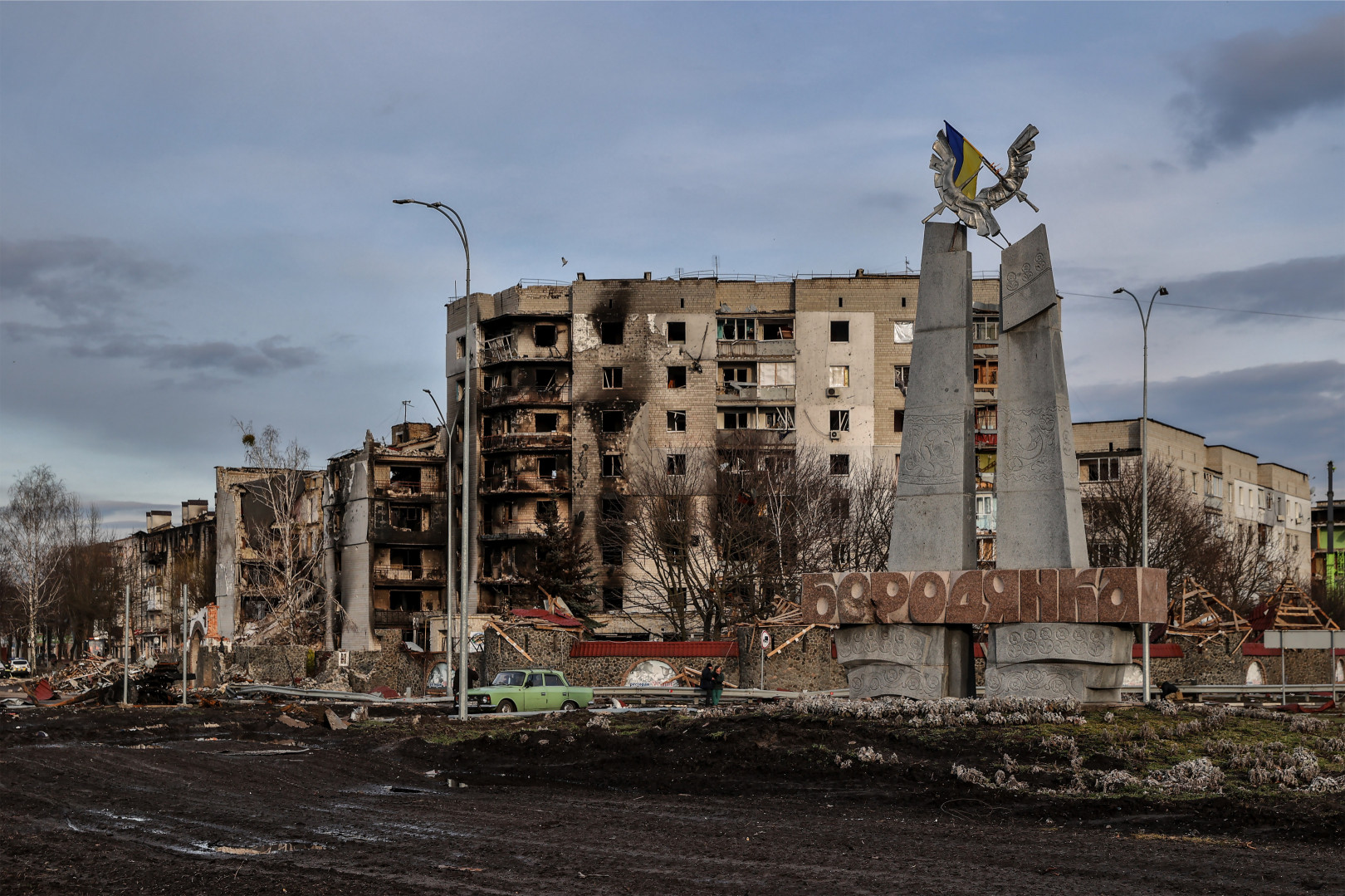
It's an overused metaphor, but it's hard to find a better one: the town of Borodyanka was like something one might see in pictures from the Second World War. Burnt-out, ruined buildings now rise above the roads destroyed by tanks. One had to look hard to see the once tidy little town beneath the surface of the destruction. Until a month ago, the memorial in the main square was probably surrounded by flowerbeds.
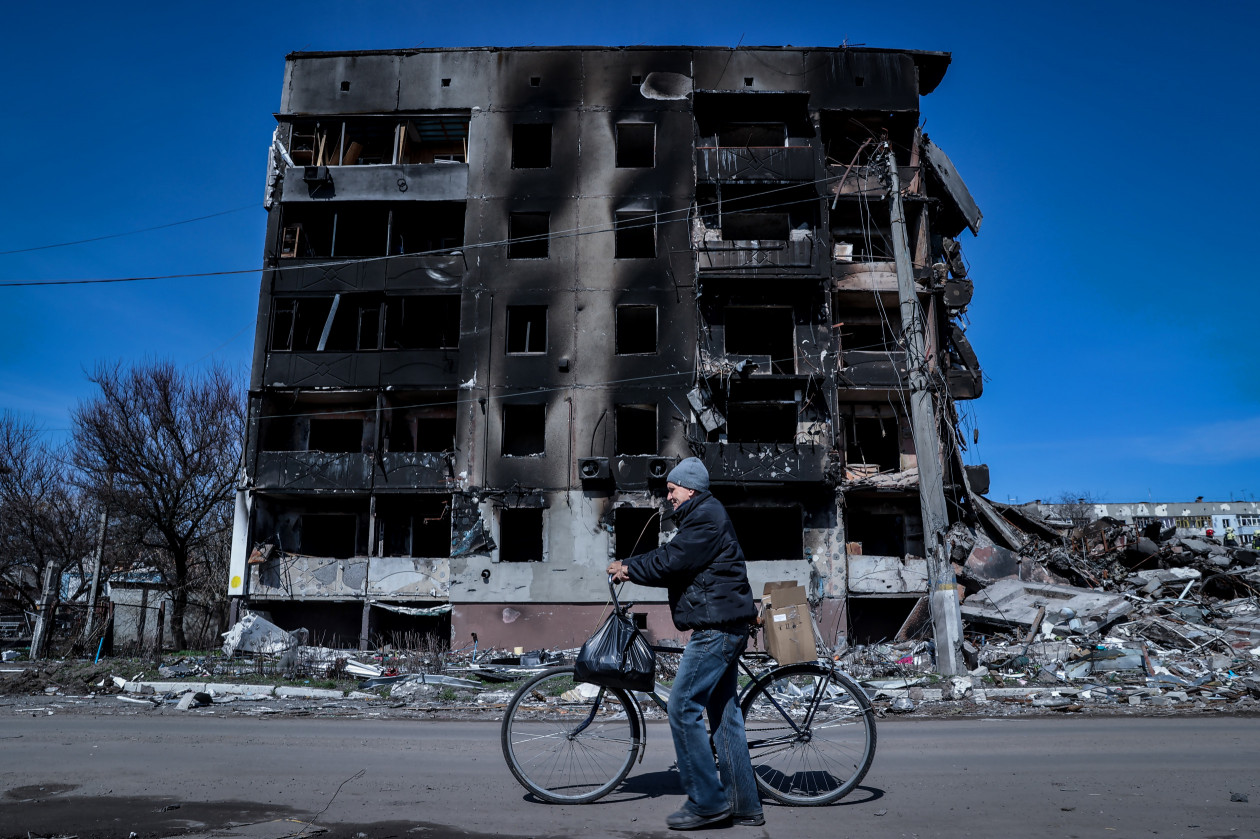
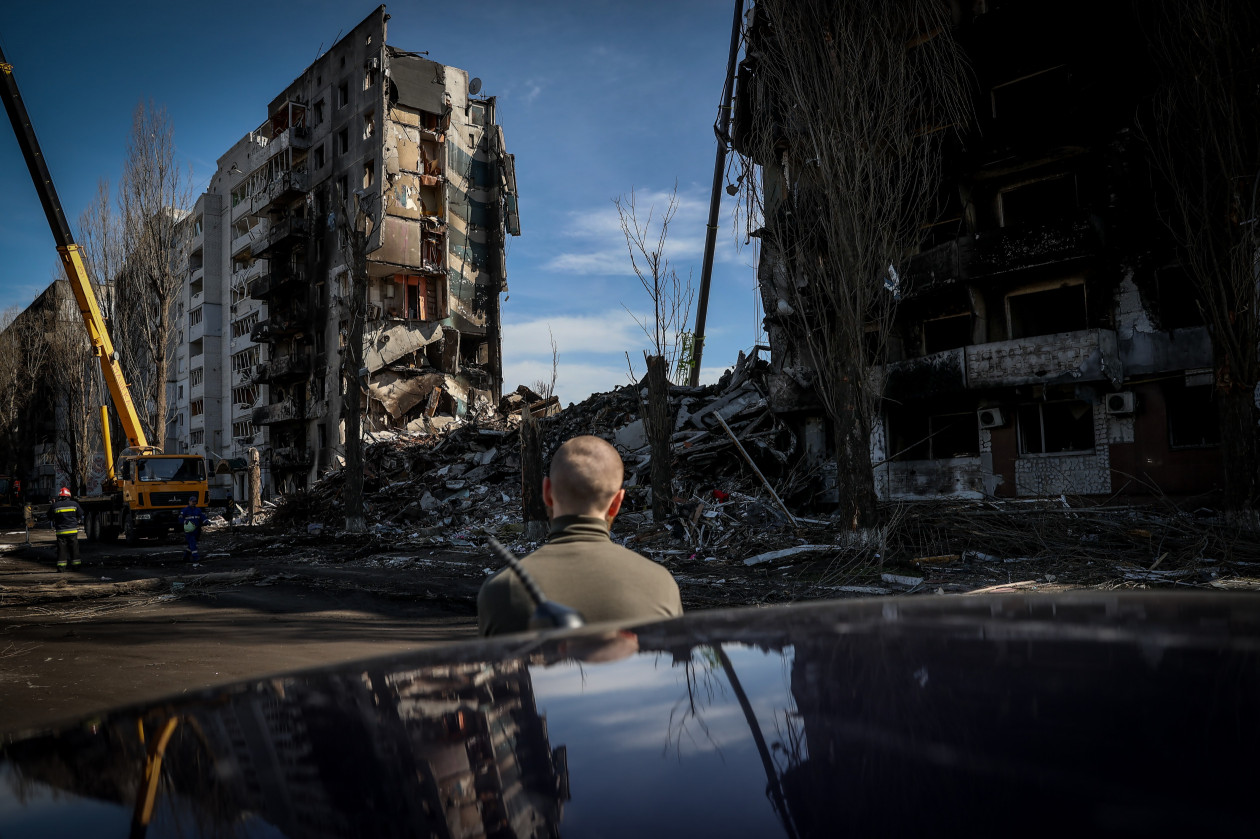
In Borodyanka, the mood was mixed between a readiness for action and tragedy. While many residents worked on reclaiming their town, other locals stood by the side of the road, their eyes worn, watching the rubble being cleared. Scores of locals still remained under the collapsed buildings.
Ukraine's Prosecutor General Irina Venediktova was in town and said that Borodynka may be the worst of the municipalities around Kiev in terms of the scale of destruction.
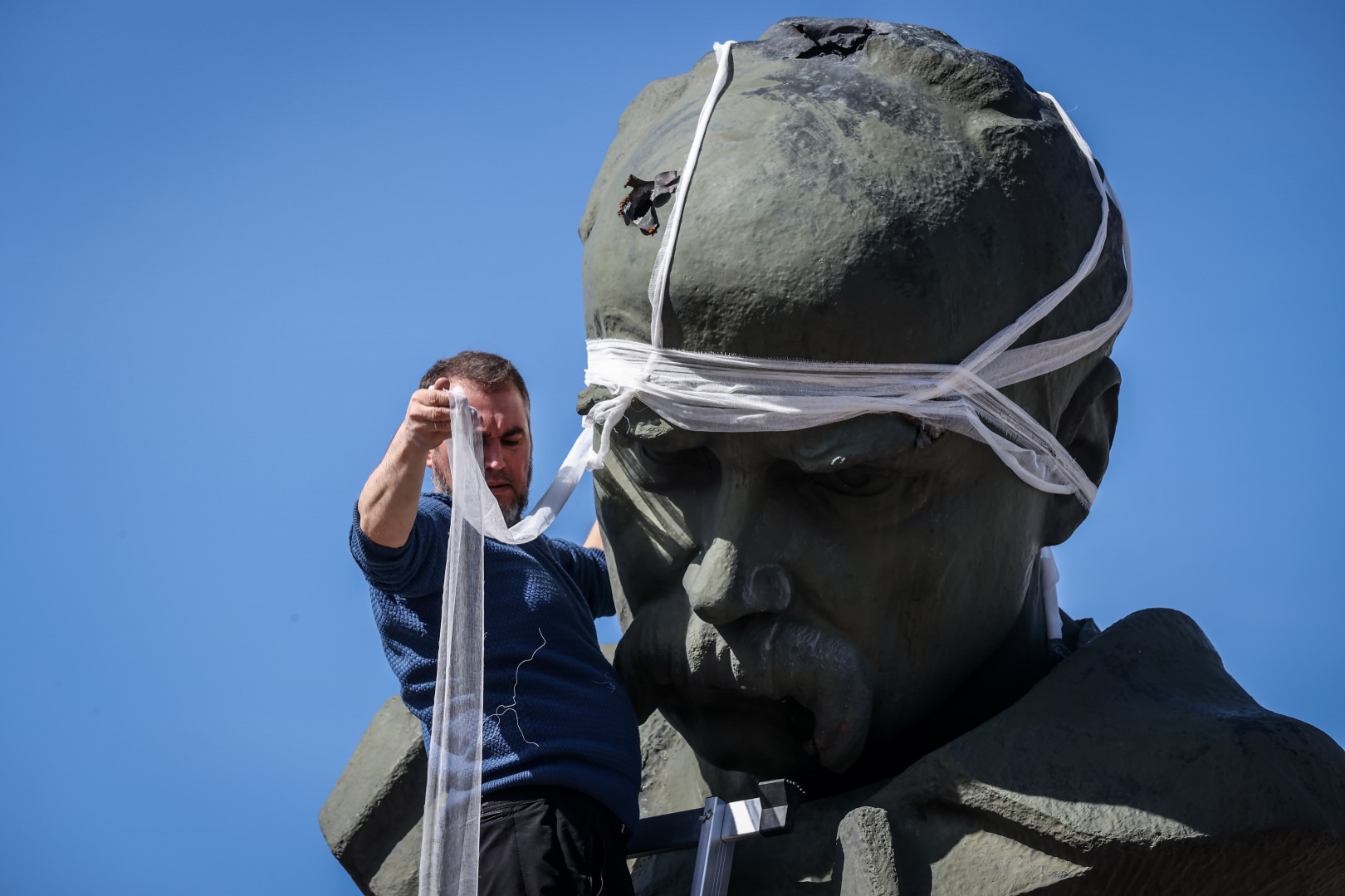
The statue of Ukrainian poet Taras Shevchenko was hit by shrapnel. A local man symbolically bandaged the damaged monument.
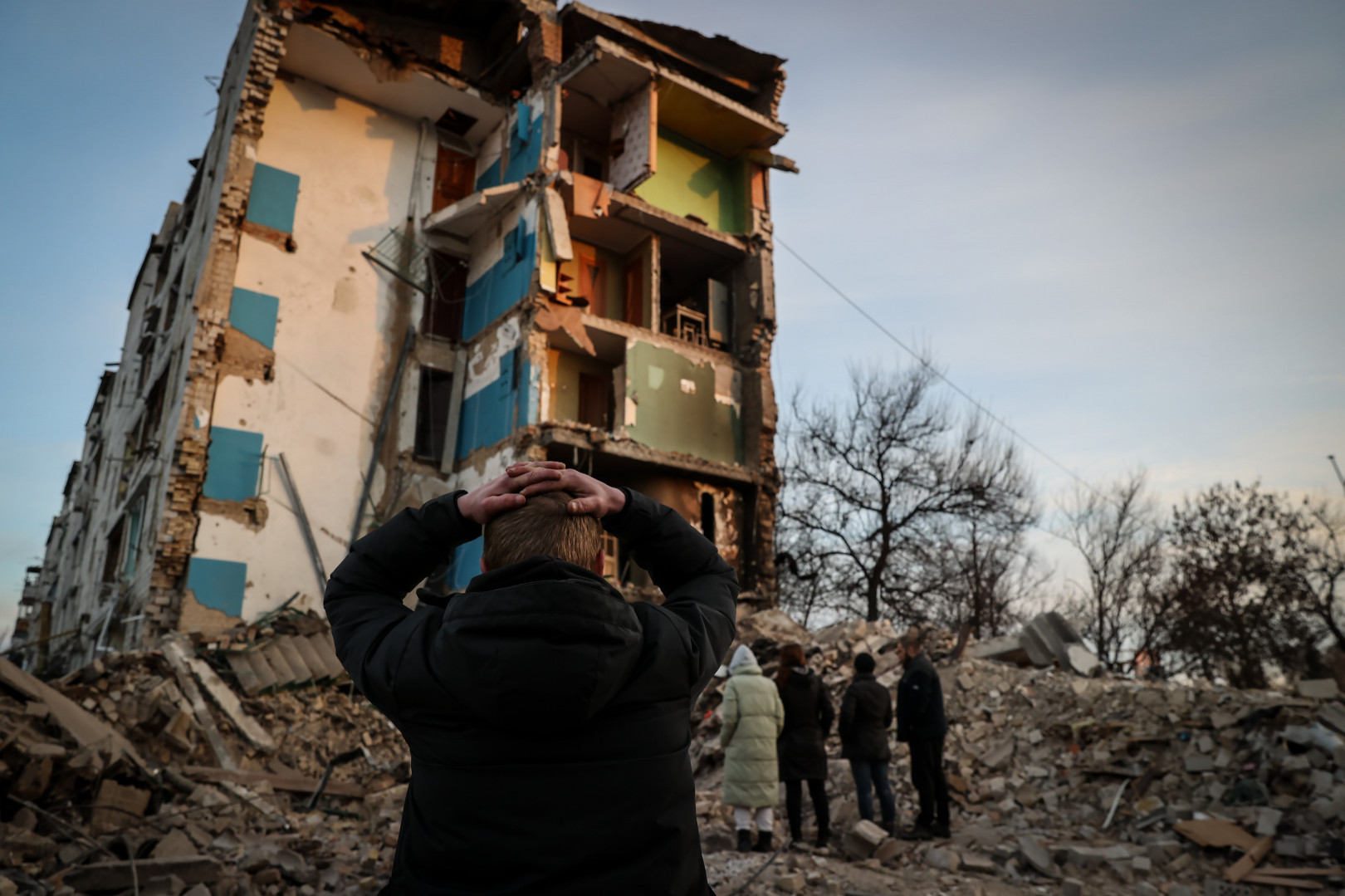
The search and clearing of the rubble started after our arrival. A silent crowd of locals watched as the firefighters worked. Entire families' bodies were found under the ruins.
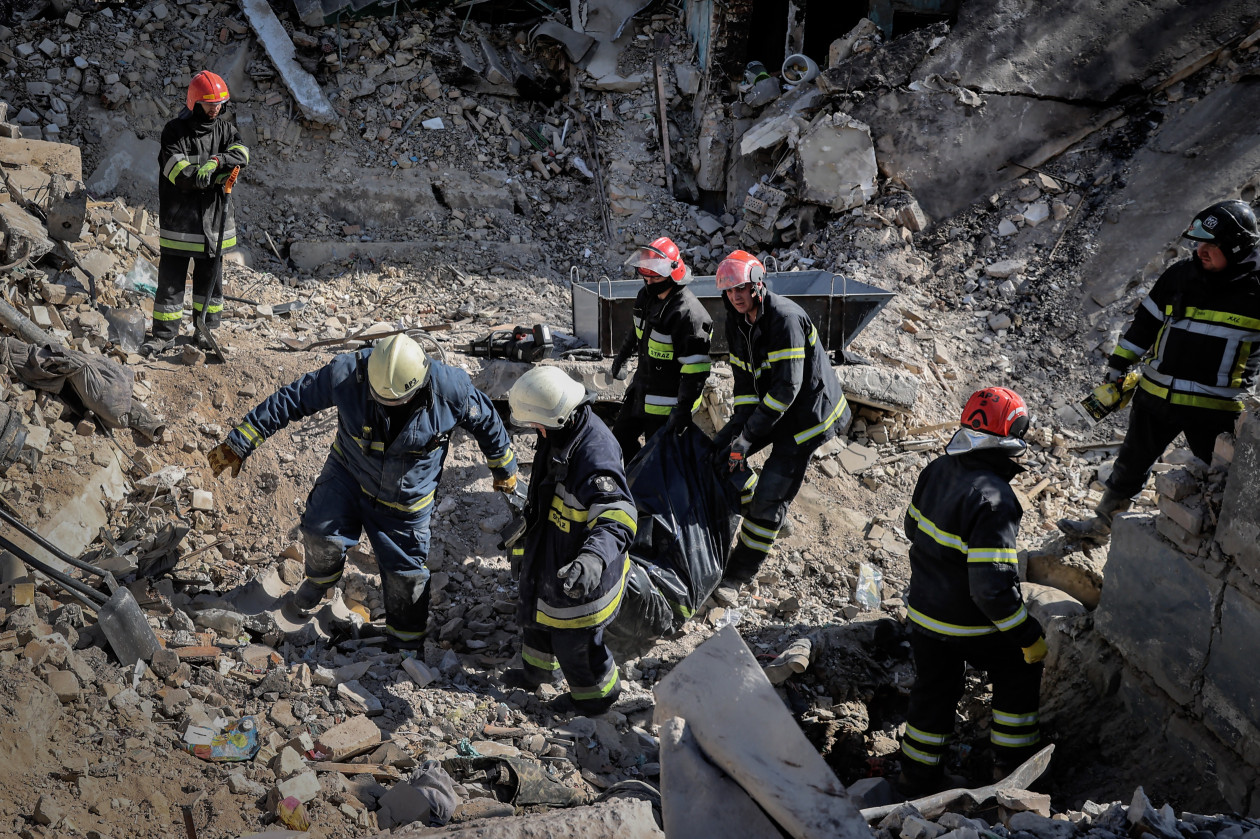
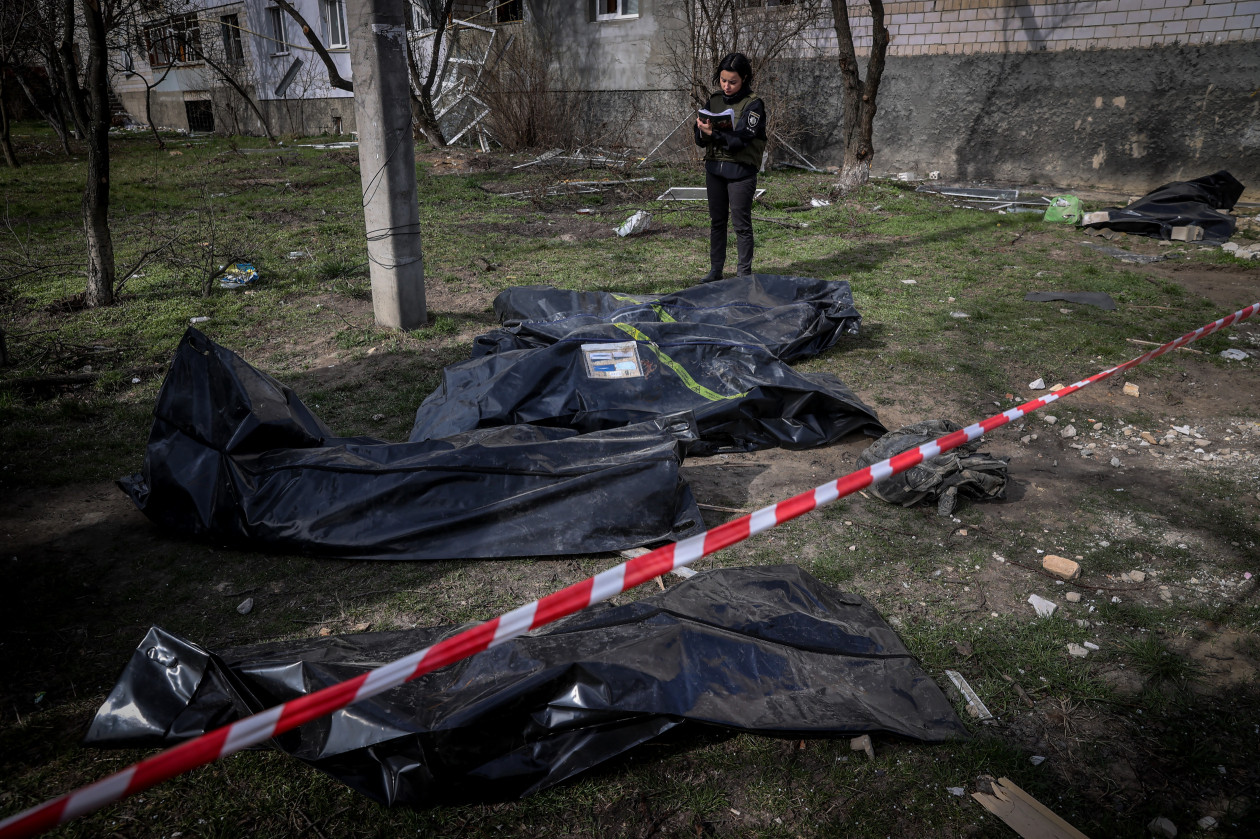
The Ukrainian Prosecutor General also said that the exact number of victims is still not known, but that 26 people were found dead under the rubble of two buildings during her visit on Thursday.
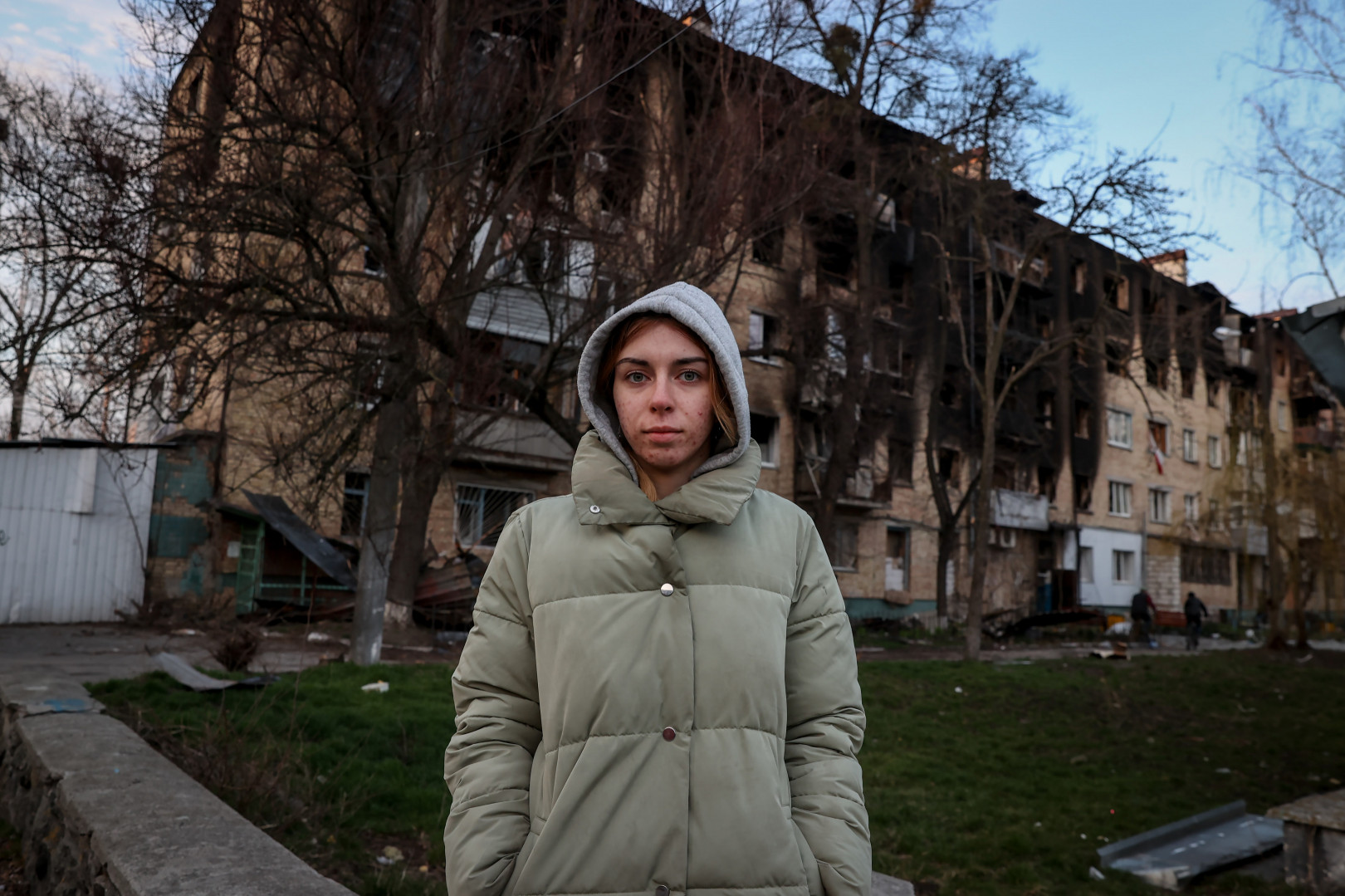
I don't even recognise Borodyanka now. It was such a cheerful, green town, children used to play in this area, everyone was happy here" Anastasiya pointed to the area where burnt-out houses now stood, with a crater between them from which firefighters were pulling lifeless bodies.
In a video message on Monday, Ukrainian President Volodymyr Zelensky said that there could be more victims of Russian troops in Borodynka than in Bucha, 23 km away, where the mayor said at least 320 civilians had been killed by Russian forces. US President Joe Biden and several Western leaders have accused the Russians of war crimes because of the atrocities in Bucha. The Russians have denied the massacre in Bucha, but – among others – Deutsche Welle's fact-checking department has found sufficient evidence that the Russian side is not telling the truth.